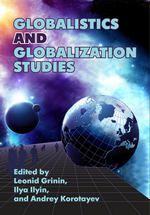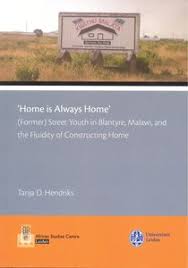Challenges For Education In An International Setting
 Third Level Education is in many respects increasingly changing in the light of two general developments: internationalisation and globalisation on the one hand, marketisation and commodification on the other hand. Whereas the first is apparently taking up on an intrinsic value of education (‘universality of knowledge’), the second can be seen as opposing its values (‘knowledge cannot be bought and sold as any other good’). However, the discussion of this contribution shows that in reality we find that on the side of implementation big business has a standing that finds its way much easier to the stage of implementation.
Third Level Education is in many respects increasingly changing in the light of two general developments: internationalisation and globalisation on the one hand, marketisation and commodification on the other hand. Whereas the first is apparently taking up on an intrinsic value of education (‘universality of knowledge’), the second can be seen as opposing its values (‘knowledge cannot be bought and sold as any other good’). However, the discussion of this contribution shows that in reality we find that on the side of implementation big business has a standing that finds its way much easier to the stage of implementation.
Keywords: third level education, globalisation, internationalisation, marketisation, educational values, legitimation.
This article goes back to the work of the authors in Connection with a Presentation to Conference in Shanghai, October 2016. The conference theme was about higher education in an international setting in which presentation included a wide range of progresses made and challenges met within the joint-venture programmes between western universities and their Chinese counterparts.
See: https://youtu.be/6FJxTwHuotI
Third Level Education is increasingly concerned with distinct, though mutually influencing aspects – they can be aligned along two dimensions: the first spans between development of personality and defining ones’ place in professional terms; the other is about growing up in a new global scientific community. What had been for centuries a very privileged area for a few outstanding and lucky scholars, is becoming a field that is increasingly open for many, ready to engage at different levels, beginning with the bachelors degrees. Let us take Bangor College China as an example.
Bangor College China is a joint venture between Bangor University in the UK and the Central University of Forestry and Technology (CSUFT) in China. It was established with the approval of the Chinese Education Ministry in 2014 as an advanced model to facilitate the internationalization of Chinese higher education. A dedicated Bangor College China offers full degrees in China which is the first for a British university. It offers four programmes including BSc in Banking and Finance; BSc in Accounting and Finance; BSc in Electronic Engineering; and BSc in Forestry and Environment Management with more than 600 students in their first and second year studies. A team of dedicated and experienced staff of teaching and administration from both Bangor University and CSUFT were in interaction. Over the last two years Bangor University has invested heavily on Bangor College China. It is responsible for the quality of the programmes and ensures that the teaching standards, assessments and student experience are equivalent to those at the Bangor home campus.
– Although the running of the joint school in general goes smoothly with good intention from both universities in the UK and China, some major challenges lie ahead in the areas of the merger of different administrative cultures; the search for professional standards; the work towards a common professional understanding, making reference to wealth of different traditions; and the development of new ways learning.
– Remarkable new opportunities go hand in hand with grave challenges: as much as we find the strive for excellence as major field of competitive concern, at the very same time we find the incredible opportunities for smaller projects, such as Bangor College China, is an example that locates the challenge of development of personality and defining ones’ place in professional terms in the context of a collaborative setting globally.
Defining the Field
International education – as matter of ranking and also cooperation and as matter of the excitement to explore new shores – experiences a kind of hype, easily overlooking the inherent contradiction. But can we really speak of an inherent contradiction? If we take things at the level of appearance, we find, of course, – and very valid – the feature of cutthroat competition – the winner gets all, at least the cherries of qualified staff and students and also the relevant resources.[i]
Although this is undeniably a strong force, we can take as well a more optimistic view – optimistic for those that are not in any relevant top-league, and – importantly – who are actually not seriously striving to gain entrance. Though it is often said that we do stand on the shoulders of giants, we also – and increasingly – are part of an overall team game – not least looking at the ancient Western cultures, claimed to be the crèche of today’s enlightened cultures in the east and west, we know that the understanding was very much one of discourse – a discourse between ‘experts’ and between ‘experts’ and ‘pupils’. The term ‘scholar’, referring to the learned person and the student alike, may give a hint, as does the term ‘scientific community’ – and it is worthwhile to mention in parenthesis that these terms are paradoxically loosing meaning at a time when scientific work can only be imagined as part of an undertaking that is social in terms of time and content – without denying the greatness, for instance of Isaac Newton. It did not require much more than a well-studied individual mind and the observation of an apple falling from the tree to find out about the law of gravity. However, using this law as crucial basic knowledge to the undertaking of flying to the moon or exploring other planets, requires the genius of many people collaborating, as also the academic labour is divided and a huge amount of resources. And let us be honest, and a bit German, by referring to the poet Goethe who states in his masterpiece:
Two souls alas! are dwelling in my breast;
And each is fain to leave its brother.
The one, fast clinging, to the world adheres
With clutching organs, in love’s sturdy lust;
The other strongly lifts itself from dust
To yonder high, ancestral spheres
(von Goethe 1808).
Read more
The Single-Payer Breakthrough In California: Robert Pollin On The Economics Of Universal Care
 On June 1, California senators voted to replace private health insurance with a single-payer system. Senate Bill 562, by State Senators Ricardo Lara and Toni Atkins, passed 23-14, and will now advance to the Assembly where the measure would require two-thirds vote in both chambers to become law.
On June 1, California senators voted to replace private health insurance with a single-payer system. Senate Bill 562, by State Senators Ricardo Lara and Toni Atkins, passed 23-14, and will now advance to the Assembly where the measure would require two-thirds vote in both chambers to become law.
Clearly, the June 1 vote by California senators is an initial step toward the adoption of a government-run universal health care system, but it already signifies a major political victory for progressives in this country, who have long advocated for a publicly funded health care system. The proposed measure, i.e., SB-562, was backed by an economic analysis undertaken by the Political Economy Research Institute (PERI) of the University of Massachusetts at Amherst. Its lead author, Distinguished Professor of Economics and Co-Director of PERI Robert Pollin, introduced the study at a capitol news conference a day before the State Senate vote — and it was undeniably instrumental in the passing of SB-562. Now that the first hurdle toward the replacement of private health insurance in California with government-run health care has been cleared, we asked Pollin to weigh in on the bill’s financial implications and its future. In the exclusive interview below, Robert Pollin discusses why a transition to a truly universal health care system makes economic sense for the state of California — and the country.
C. J. Polychroniou: Bob, could you start by briefly outlining the key features of SB-562 and tell us how you and PERI got involved in providing the financial analysis for the proposed measure?
Robert Pollin: SB-562, in its essentials, proposes a classic single-payer, or Medicare-for-All, health care system for the State of California. That means basically two things: First, everyone in California is guaranteed access to decent health care, regardless of their income level, where they work or whether they have a job at all. This principle is quite straightforward. It is the equivalent to the principle on which we operate public schools in the US. It is also the principle that operates for Medicare right now, covering everyone 65 and over. And second, [the bill provides that] private insurance companies are no longer permitted to offer health care coverage for residents of California.
The way I got involved is also simple: I was asked to get involved by RoseAnn DeMoro, who is the longtime executive director of the California Nurses Association and National Nurses United. In my view, the nurses’ union is the most progressive and innovative union in the US and probably the single most effective force for good in US mainstream politics today. So, when they asked me to get involved, it would have been very hard to say “no.” On top of that, I have worked with them for years now, on the issue of taxing Wall Street — i.e., the “Robin Hood Tax.” In all of my previous work with them, they have had total respect for my independence as a researcher. That is critical. They knew that, if I took this commission, I was doing it to produce a serious piece of analytic work. I was not about to just do cheerleading for them.
One of the major objections launched against SB-562 was that it would be financially unsustainable. However, the study that you and your colleagues undertook says providing universal coverage would increase overall system costs by about 10 percent, but the single-payer system could produce savings of about 18 percent. Can you elaborate a bit on this?
At present, the total cost of health care in California — including everything — is roughly $370 billion. But even with this level of spending — about 14 percent of total GDP in California — there is still about 7.5 percent of California’s population (2.7 million people) who have no health insurance, and another 36 percent of the population (about 12 million people) who are underinsured, i.e., they have limited access to health care because their insurance premiums, deductibles and/or co-payments are extremely high relative to their income levels. My co-authors James Heintz, Peter Arno and Jeannette Wicks-Lim and I estimated that to provide good health care to all those who are presently either uninsured or underinsured would raise total system costs to about $400 billion, assuming that the health care system remained intact otherwise. We then estimated that, with the single-payer system, we could extract about 18 percent in total cost savings. We get those savings through reducing excessive administration, controlling pharmaceutical prices, fixing fees for doctors and hospitals at Medicare rates, and reducing the high degree of waste in the present system of service provision (such as doctors ordering excessive procedures).
Through these cost-control measures, we estimate that the single-payer system can provide everyone in California with decent health care at a total cost of $330 billion, i.e., a savings of about 8 percent relative to the current system while still delivering universal coverage.
Read more
Tanja D. Hendriks ~ ‘Home Is Always Home’. (Former) Street Youth In Blantyre, Malawi, And The Fluidity Of Constructing Home
 For many Malawians the concept of home is strongly associated with the rural areas and one’s (supposedly rural) place of birth. This ‘grand narrative about home’, though often reiterated, doesn’t necessarily depict lived reality. Malawi’s history of movement and labor migration coupled with contemporary rapid urbanization makes that the amount of people whose lives do not fit this grand narrative, is increasing fast.
For many Malawians the concept of home is strongly associated with the rural areas and one’s (supposedly rural) place of birth. This ‘grand narrative about home’, though often reiterated, doesn’t necessarily depict lived reality. Malawi’s history of movement and labor migration coupled with contemporary rapid urbanization makes that the amount of people whose lives do not fit this grand narrative, is increasing fast.
In the current context of extreme poverty, destitution and devastation – the latter due to the flash floods of January 2015 – slum areas in Blantyre city are growing and so is the number of street children and youth. Some of them are taken in by organizations such as the Samaritan Trust; a street children shelter. This program aims at taking street youth home by ‘reintegrating’ them in their (rural) communities. When asked, the majority of (former) street youth adhere to the grand narrative and state their home to be in a rural village. Yet at the same time, this home is a place they intentionally left and do not wish to (currently) return to. Hence they are generally depicted as ‘homeless’. I wondered: how do (former) street youth in Blantyre, Malawi, engage with ‘the grand narrative about home’ in trying to imagine their ‘becoming at home’ in the city?
My thesis departs from the idea that (the search for) home is an integral part of the human condition. During eight months of ethnographic fieldwork in Blantyre, Malawi, I used qualitative methods – mainly interviews and participant observation – to come to an understanding of the meaning of home for (former) street youth. Some of them, the street girls, currently reside at Samaritan Trust and the former street youth are boys who formerly resided there. Their home-making practices in relation to a marginalized socio-economic position in an overall challenging economic context point towards more fluid and diverse constructions of home that exist alongside the grand narrative without rendering it obsolete. Under pressure, (former) street youth paradoxically attempt to solidify home – even though home remains fluid in practice.
These attempts assist in coping with life in liquid modernity while they are at the same time fraught with contradictions, especially when these solidifications are themselves solidified in policies. These policies subsequently hamper (former) street youth’s becoming at home in town by following the grand narrative and thus confining their homes to rural areas. I conclude that home can best be seen as a fluid field of tensions (re)created in the everyday, thus leaving space for both (former) street youth’s roots and routes. An alternative way in which (former) street youth try to become at home in the city is by searching for a romantic partner to co-construct this (future) home.
This book is based on Tanja D. Hendriks’ Master’s thesis ‘’Home is Always Home’: (Former) Street Youth in Blantyre, Malawi, and the Fluidity of Constructing Home’, winner of the African Studies Centre Leiden’s 2016 Africa Thesis Award. This annual award for Master’s students encourages student research and writing on Africa and promotes the study of African cultures and societies.
Read the book: http://www.ascleiden.nl/home-always-home-former-street-youth-blantyre-malawi-and-fluidity-constructing-home
Stephen Ellis & Gerrie ter Haar ~ Africa’s Religious Resurgence And The Politics Of Good And Evil
Charles Taylor, the former president of Liberia, can be found every workday sitting in the dock of a small, bright, ultramodern courtroom in The Hague. Taylor is accused of responsibility for some of the gravest crimes imaginable— atrocities committed in Liberia’s neighbor to the northwest, Sierra Leone, during that country’s 1991–2002 civil war. The crimes include authorizing mass recruitment of child soldiers, mass rape, and hacking off the hands of hundreds of people. Yet Taylor is known as a man who devotes considerable attention to religious matters. His example serves as a reminder that combining the practice of religion with the use of extreme violence is not as unusual as one might think.
The ex-president does not dispute that these crimes actually occurred. Nor does he deny that equally terrible things happened in his own country during the war that was fought there, off and on, between 1989 and 2003. But the charges against him concern Sierra Leone, not Liberia. And he maintains that the atrocities perpetrated in Sierra Leone were none of his doing. It is the first time an African head of state has ever stood trial before an international tribunal. Taylor is appearing before the Special Court for Sierra Leone—a hybrid body created jointly by the state of Sierra Leone and the United Nations. The case is being heard in the Netherlands rather than West Africa for security reasons: Taylor still has a few influential friends in the region.
Most of the time Taylor, born in Liberia in 1948, resembles nothing so much as the benign patriarch of a wealthy family. He wears a dark business suit, a silk tie, and lightly tinted glasses. He has a chunky gold watch on his wrist. He chats affably with his lawyers. Yet not only is he standing trial for war crimes; his eldest son, Charles Taylor Jr., better known as “Chuckie,” currently awaits trial in Florida on charges of torture. Taylor’s speeches, in the days when he was Liberia’s head of state (1997–2003), were full of extravagant references to Jesus. He once declared to a mass rally that Jesus Christ was the true president of Liberia, and he is often described as having been a Baptist preacher. It is also reported that he joined the Nation of Islam during the year when he was held in a Massachusetts jail awaiting extradition to his home country. (Taylor had escaped to America from Liberia in 1983—apparently with $900,000 of government money in his possession—after a dispute with the country’s military dictator. Detained by us authorities at the request of the Liberian government, which wanted to try him for embezzlement, Taylor escaped from the Plymouth House of Correction in 1985.)
Read more: https://openaccess.leidenuniv.nl/ASC-071342346-186-01.pdf?
Will California Show The Way To The Rest Of The US On Health Care?
 Since the election of Donald Trump to the presidency, the news coming out of the US are gloomy and pessimistic. Yet, resistance to Trumpism is growing across the country, and there are even highly encouraging developments at the state level, such as the effort to introduce a universal health care system in the state of California.
Since the election of Donald Trump to the presidency, the news coming out of the US are gloomy and pessimistic. Yet, resistance to Trumpism is growing across the country, and there are even highly encouraging developments at the state level, such as the effort to introduce a universal health care system in the state of California.
Indeed, on June 1, California senators voted to replace private health insurance with a single-payer system. Senate Bill 562, by senators Ricardo Lara and Toni Atkins, passed 23-14, and will now advance to the Assembly where the measure would require two-thirds vote in both chambers to become law.
Clearly, the June 1 vote by California senators is an initial step towards the adoption of a government-run universal health care system, but it already signifies a major political victory for progressives in the United States, who have long advocated for a publicly-funded health care system. The proposed measure, i.e., SB-562, was backed by an economic analysis undertaken by The Political Economy Research Institute (PERI) of the University of Massachusetts at Amherst. It’s lead author, Distinguished Professor of Economics and Co-Director of PERI Robert Pollin, introduced the study at a Capitol news conference a day before the State Senate vote — a move that was undeniably instrumental in the passing of SB-562 which cleared the first huddle towards the replacement of private health insurance in California with government-run health care. The full content of the aforementioned study can be downloaded at the link below.
Link: PollinZetZalZECONOMICZANALYSISZOFZCAZSINGLE-PAYERZPROPOSAL—5-31-17 (1)
The Nigerian-Biafran War
 May 30 2017 marks the 50th birthday of the declaration of independence of the republic of Biafra, leading up to a 30-month civil war between federal Nigerian troops and the (Igbo) secessionists. On the occasion of this anniversary, the Library, Documentation and Information Department at the African Studies Centre in Leiden (ASCL) has compiled a web dossier on the Nigerian Civil War (1967–1970), also known as the Biafran War.
May 30 2017 marks the 50th birthday of the declaration of independence of the republic of Biafra, leading up to a 30-month civil war between federal Nigerian troops and the (Igbo) secessionists. On the occasion of this anniversary, the Library, Documentation and Information Department at the African Studies Centre in Leiden (ASCL) has compiled a web dossier on the Nigerian Civil War (1967–1970), also known as the Biafran War.
Far from being an exhaustive or even representative overview of the record of scholarship that has appeared on this topic, this dossier is an attempt to highlight different discourses reflected in the ASCL Library’s collection. After the introduction, section 2 presents a selection of publications on the war, ranging from a 1967 propaganda leaflet by the Nigerian government of information (Unity in Diversity) to a 2016 article on ‘the tensions in Nigeria-Biafra war discourses’. A highlight of this section is a collection of student essays on the civil war written in 1971 at the Toro teacher’s college. The cahiers were donated by their teacher, Aart Rietveld. Noteworthy is also the civil war chapters in the textbook series on civics and history for primary schools.
The third section deals with fictional accounts, personal narratives and poetry on the Biafran conflict, illustrating how much more literature there is than the (rightly famous) writings of Ken Saro-Wiwa, Adichie and Achebe.
Sections 4,5 and 6 capture the conflict through the biographical lenses of key actors. Writings by and about the two political protagonists, General Gowon (Nigerian head of state 1966–1975) and General Ojukwu (president of Biafra 1967–1971), give an insight into the federal and Igbo perspectives of the conflict. The third person chosen for this biographical section is the Yoruba nationalist Obafemi Awolowo, who was active as Federal Commissioner for Finance in Gowon’s cabinet during the war. Chinua Achebe portrays Awolowo as the architect of the starvation policy meant to crush the Igbo defence: “It is my impression that Chief Obafemi Awolowo was driven by an overriding ambition for power, for himself in particular and for the advancement of his Yoruba people in general. […] In the Biafran case it meant hatching up a diabolical policy to reduce the numbers of his enemies significantly through starvation […].”(There was a country, p. 233). This view contrasts strongly with the almost hagiographic accounts of “the man of courage , wisdom, reason and vision” (according to Moses Makinde).
The dossier is concluded with a selection of web resources and is introduced by former LeidenASA fellow Jays Julius-Adeoye, who recently published ‘The Nigeria-Biafra war, popular culture and agitation for sovereignty of Biafra nation’ in the ASCL working paper series.



